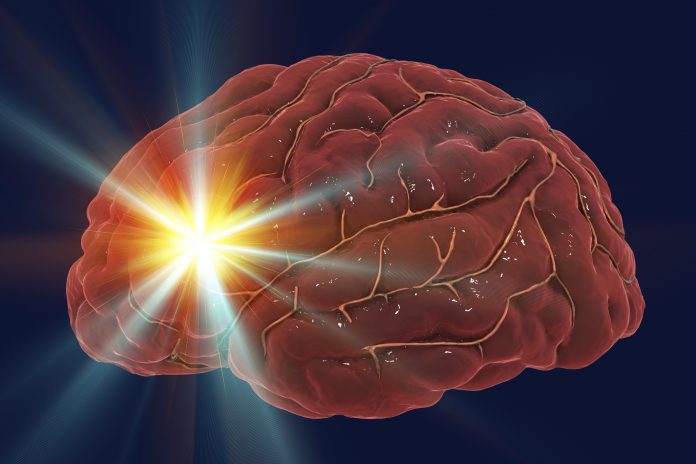
University of Birmingham, England, researchers have launched a new study that will seek to develop a saliva-based early diagnostic for stroke. The research will build off past findings by Antonio Belli, MD, professor of Trauma Neurosurgery at the University of Birmingham’s Institute of Inflammation & Ageing, which could eventually dramatically change the emergency care stroke patients receive.
The three-year GHoST (Golden HOur for STroke) study will collaborate with the West Midlands Ambulance Service University NHS Foundation Trust, Midlands Air Ambulance Charity, and University Hospitals Birmingham NHS Trust. Marker, a company that has been making progress in developing biomarkers in the area of sports concussion, based in the U.S. and built on research from the University of Birmingham, will serve as the diagnostic partner for GHoST.
Quick and early diagnosis of stroke can greatly improve patient care, as is can allow for the early delivery of drugs to break up blood clots in the brain (thrombolysis) or to provide a thrombectomy, the surgical removal of the blood clot. Effective treatment of stroke in the early hours of onset can both prevent death and preserve vital brain function and limit patient disability.
In the U.K., the current protocol to detect stroke for ambulance personnel uses a symptoms checklist, which then triggers transfer of the patient to a hyperacute stroke unit for a full assessment. If that determines the patient has suffered a stroke, they are then transferred to a neuroscience unit for treatment. This process can add an hour or more to the time from stroke onset to a patient receiving treatment. A fast diagnostic using blood, urine, or saliva could help route patients directly to a specialist to receive earlier treatment.
Belli, who is also chief medical officer at Marker, has conducted previous studies showing that specific molecules as saliva change rapidly after a traumatic brain injury. A three-year study in rugby players showed that these biomarkers can be used in next-generation diagnostics to rapidly detect concussion.
“Our previous studies detected ultra-early biomarkers and cellular responses that had never been reported in human studies before and resulted in a non-invasive diagnostic test that could change the way concussion is managed,” said Belli. “In conjunction with our industry partner Marker Diagnostics, we’re now looking to repeat this success with stroke.”
The GHoST study will use the same protocol Marker employed in its previous studies which has also included collaborations with the Premier League and English Championship, the top two football (soccer) leagues in England. In the new research, trained paramedics will collect urine, blood, and saliva samples from suspected stroke patients with the first hour of onset of symptoms. Additional samples will be collected while the patient receives the current standard of care.
The researchers will pay particular attention to biomarkers contained in small non-coding RNA (sncRNAs) found in the patient’s saliva sample, biomarkers Belli and his team have identified to differentiate those who have received a concussion from those who are non-concussed. In addition to early identification for stroke patients, the GHoST study will focus on whether a diagnostic test can differentiate between the two types of stroke (ischemic and hemorrhagic), which require very different treatment approaches. The hope is the study will also aid in the differentiation of stroke from stroke-mimicking conditions including seizures and migraines, which can account for as many as 40% of all suspected stroke cases.
“Currently, paramedics in the U.K. rely on the FAST test to assess whether someone is having a stroke. In the absence of brain scanning equipment, FAST is the best diagnostic tool we have,” said Richard Francis, head of research at the Stroke Association, a provider of funding for the study. “FAST is not perfect. At the moment, paramedics can mis-diagnose other conditions, such as seizures, as stroke, and not all stroke patients have FAST symptoms. Having a saliva test would be a massive step forward in pre-hospital diagnosis for stroke and really help people to get the right diagnosis, to get to the right hospital for the right treatment, and in the quickest time.”











